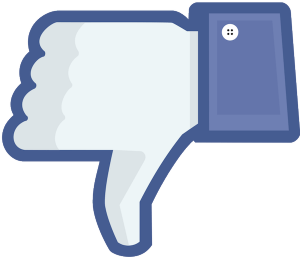 Facebook's psychological study of how positive and negative posts affect the online behavior and attitude of its users has brought it unwanted media scrutiny today from the New York Times, Wall Street Journal, Slate, the Guardian and other media outlets—with the usual trickle-down effect—casting the social media giant as an amoral science lab experimenting on unwitting subjects.
Facebook's psychological study of how positive and negative posts affect the online behavior and attitude of its users has brought it unwanted media scrutiny today from the New York Times, Wall Street Journal, Slate, the Guardian and other media outlets—with the usual trickle-down effect—casting the social media giant as an amoral science lab experimenting on unwitting subjects.
According to the Times, Facebook "manipulated the news feeds of over half a million randomly selected users to change the number of positive and negative posts they saw." In an experiment conducted in 2012, Facebook hid certain emotional words from 700,000 users' news feeds, to see what effect they had on subsequent behavior on the social network, according to the Guardian. The experiment was conducted without users' knowledge or consent, although the company responded that its terms of service allows for this kind of news feed manipulation, according to the Times.
In the Guardian's coverage, a researcher unconnected to the Facebook experiment said that a company does not get an "ethical free pass" when users check a terms of service box. The overall tone of the media coverage plays into the conception of Facebook as a global octopus with an evil genius for absorbing and manipulating data on individuals.
But once the outrage—real or feigned—subsides, brand communicators will likely do some absorbing of their own and consider the experiment's findings.
Most significantly, the experiment determined that moods are "contagious," according to the Times. People who saw more positive words in their Facebook news feed tended to write posts that were tonally positive, while people who saw more negative posts expressed themselves on Facebook more negatively. The results of the study were published in the journal "Proceedings of the National Academy of Sciences of the United States of America."
If you're charged with brand communications on social channels, you might be interested to know that on Facebook, "when positive expressions were reduced [for those whose news feeds that were examined], people produced fewer positive posts and more negative posts; when negative expressions were reduced, the opposite pattern occurred."
So you might consider being thankful to Facebook for launching the study—and perhaps also thankful that you had nothing to do with it.
Follow Steve Goldstein: @SGoldsteinAI

5 responses to “What PR Pros Can Glean From Facebook’s Secret Psychological Tests”